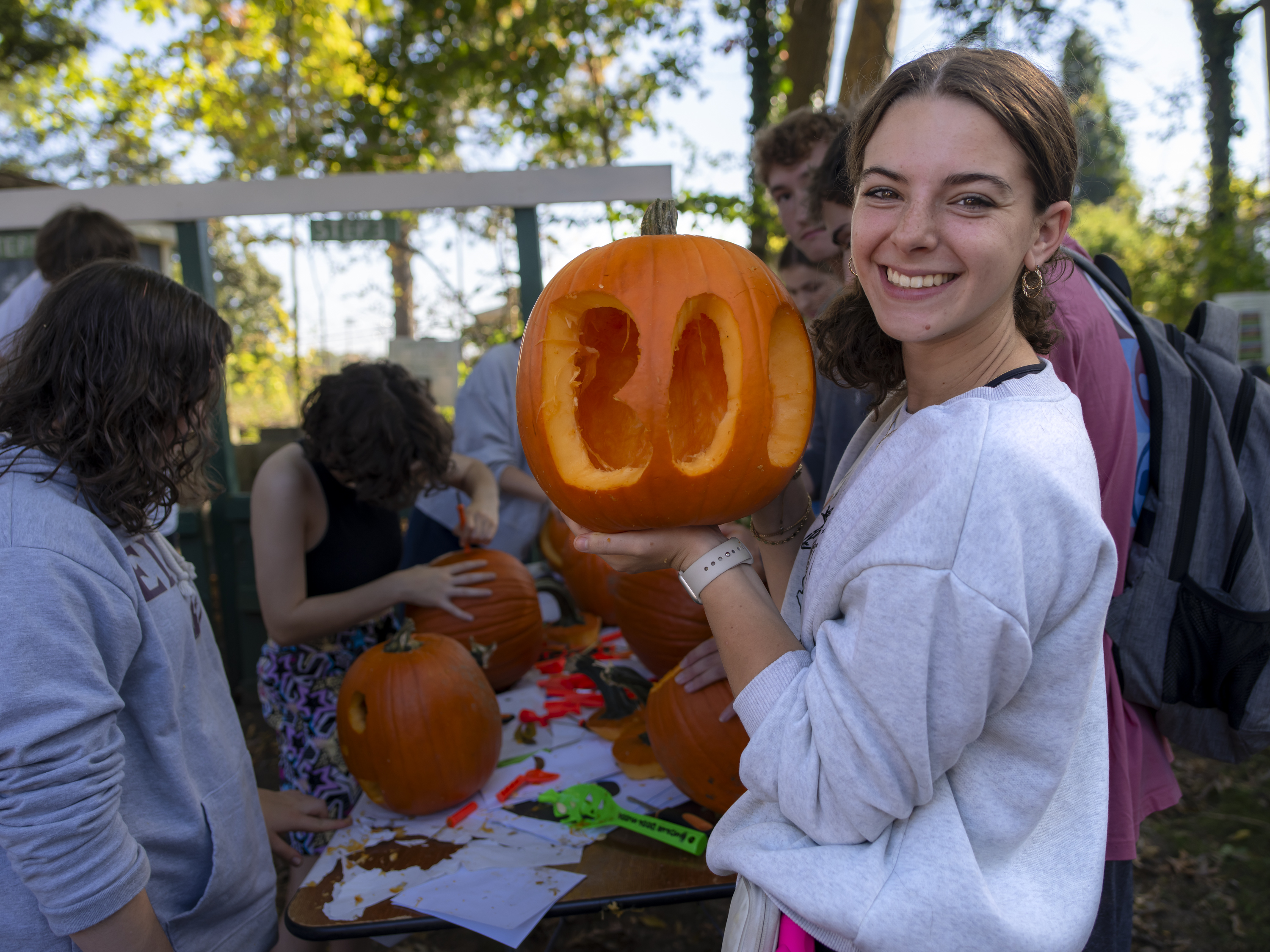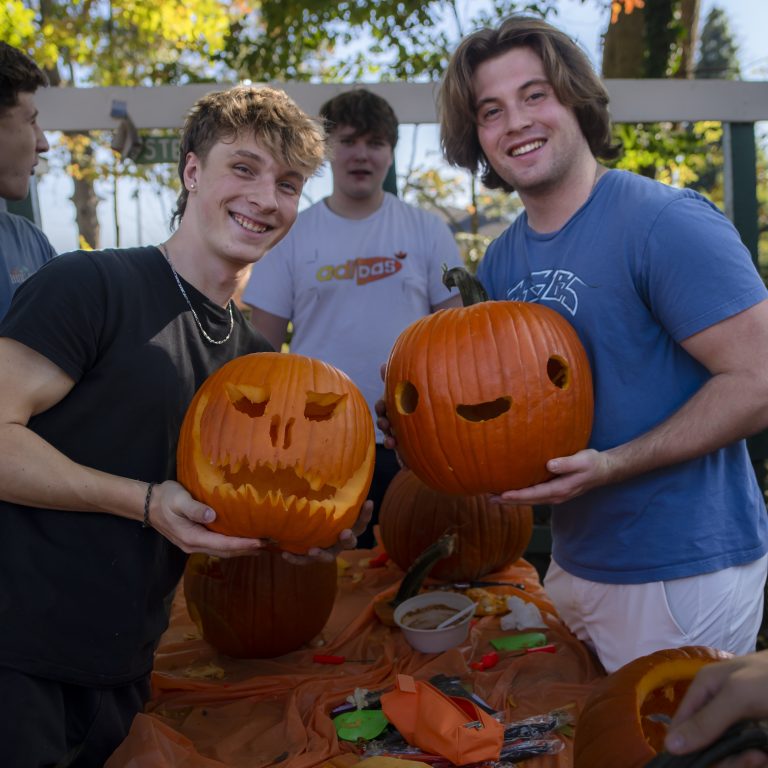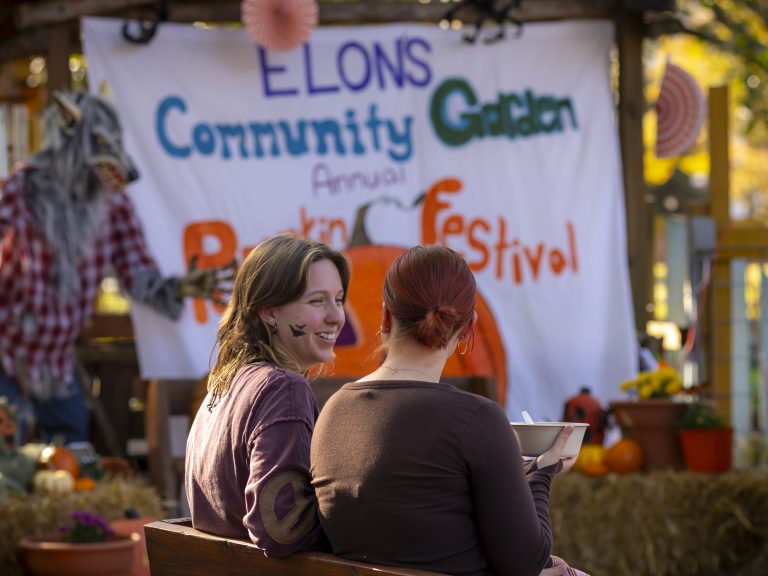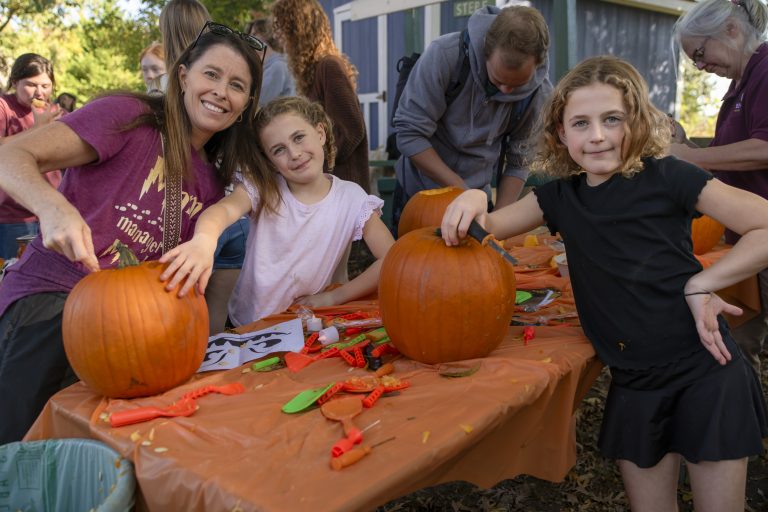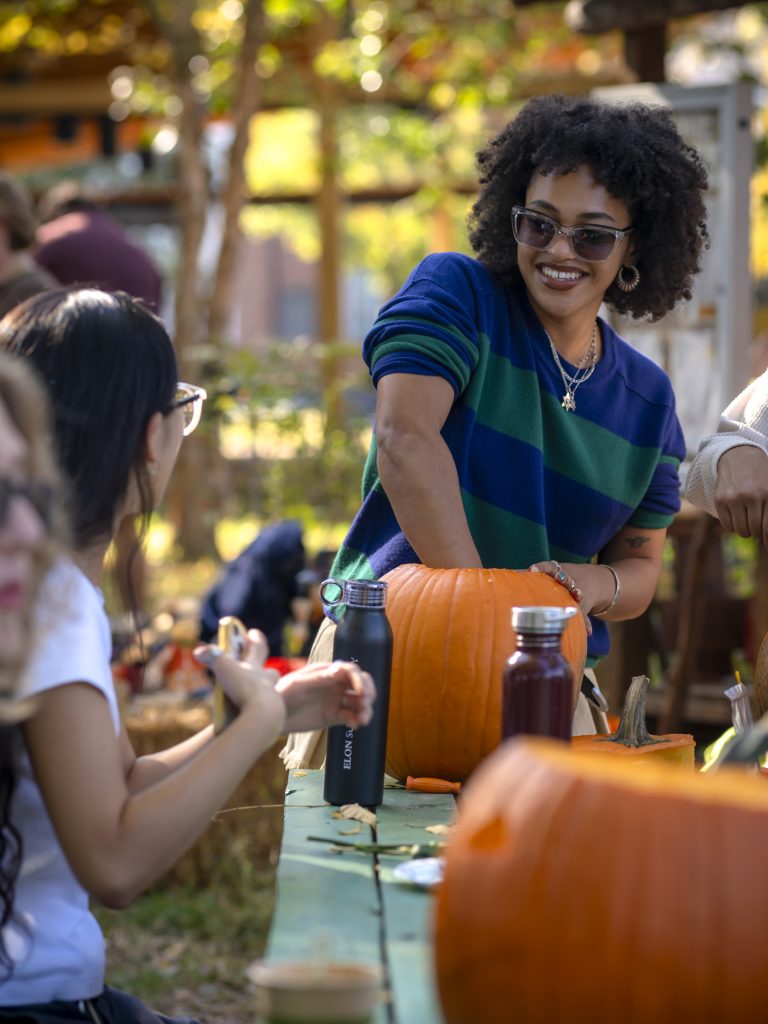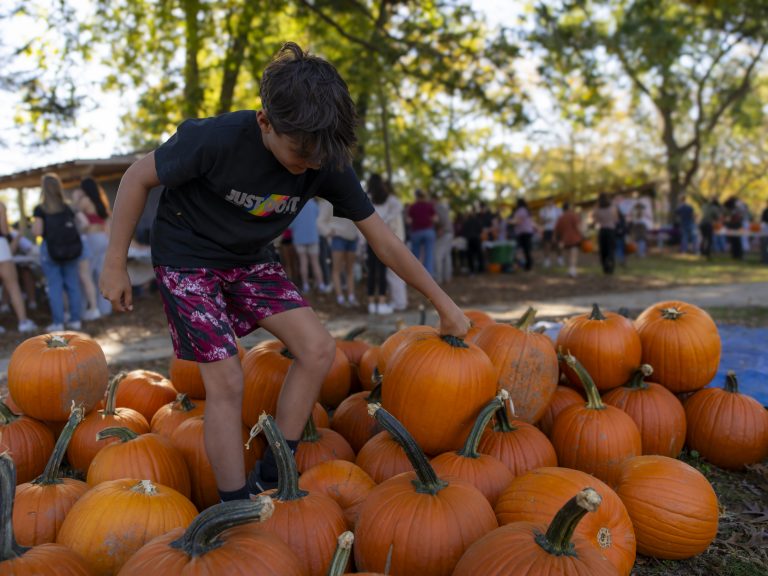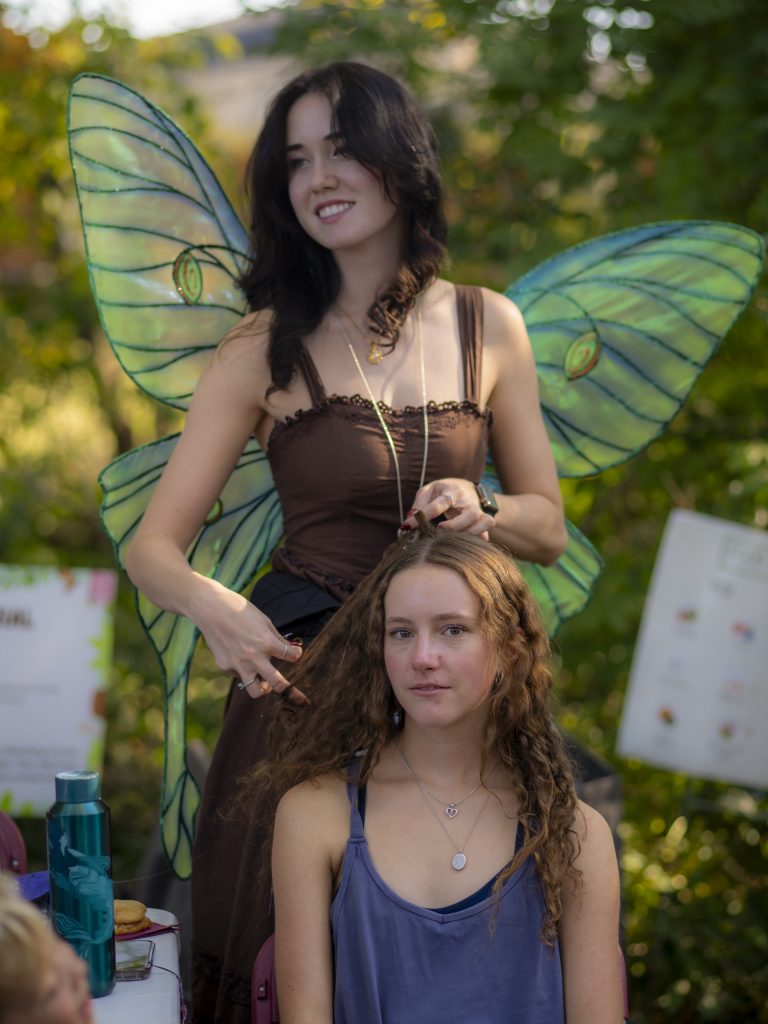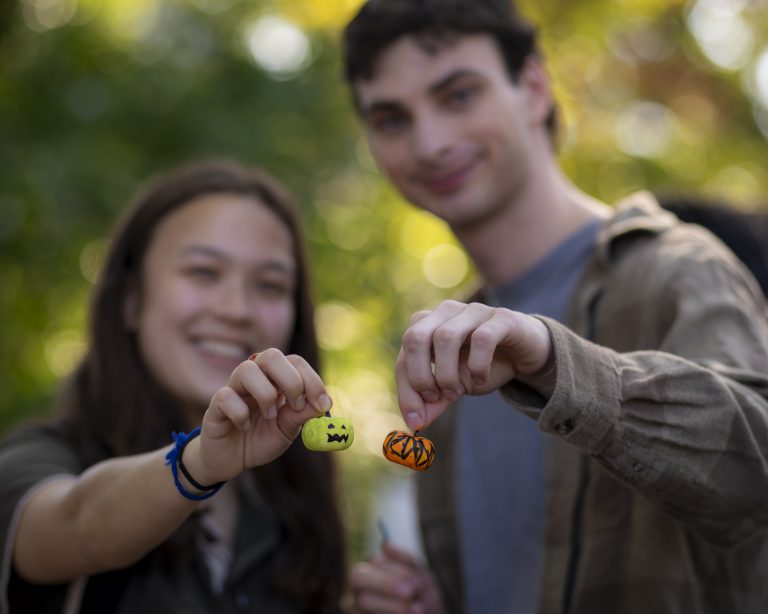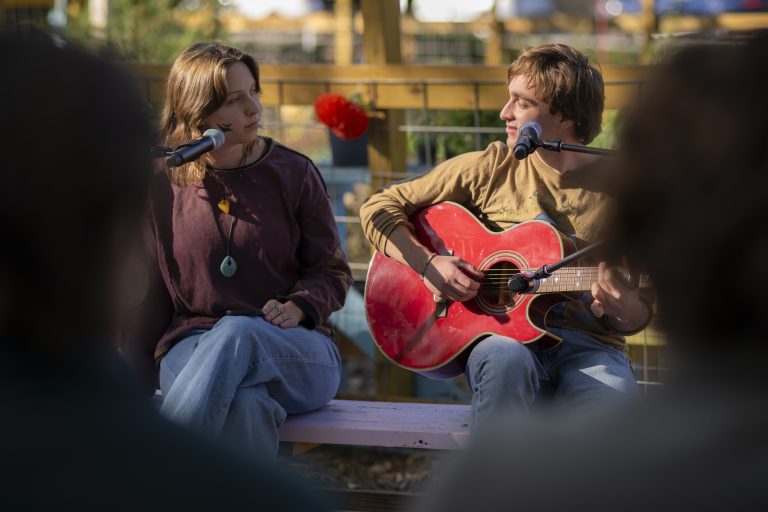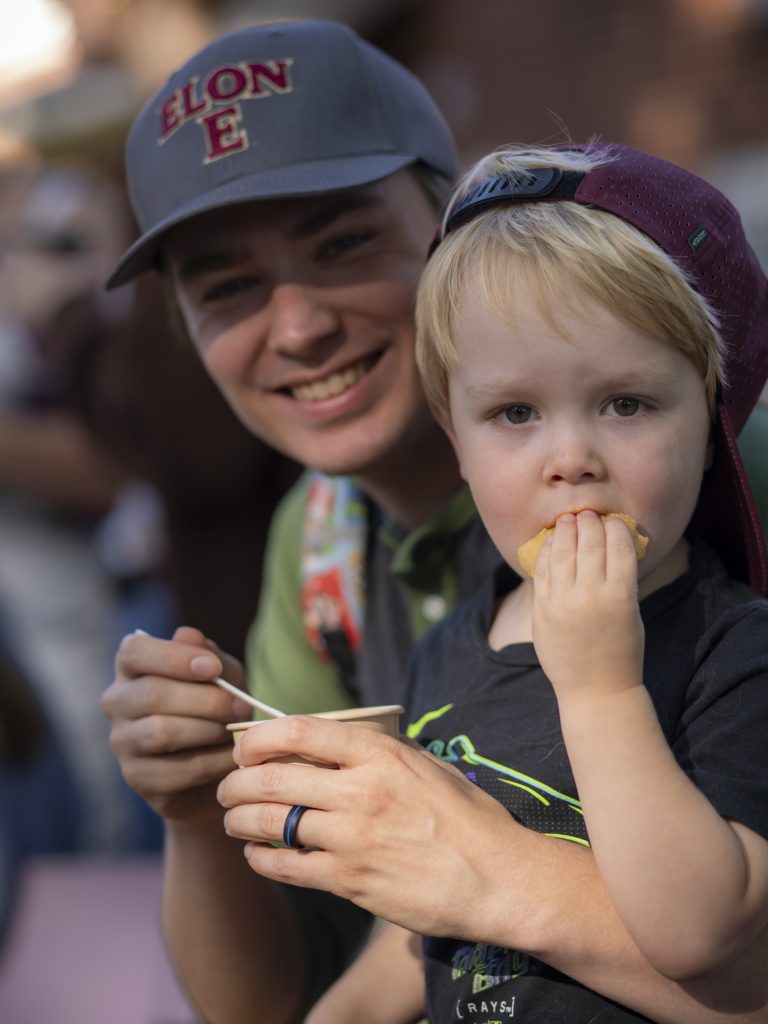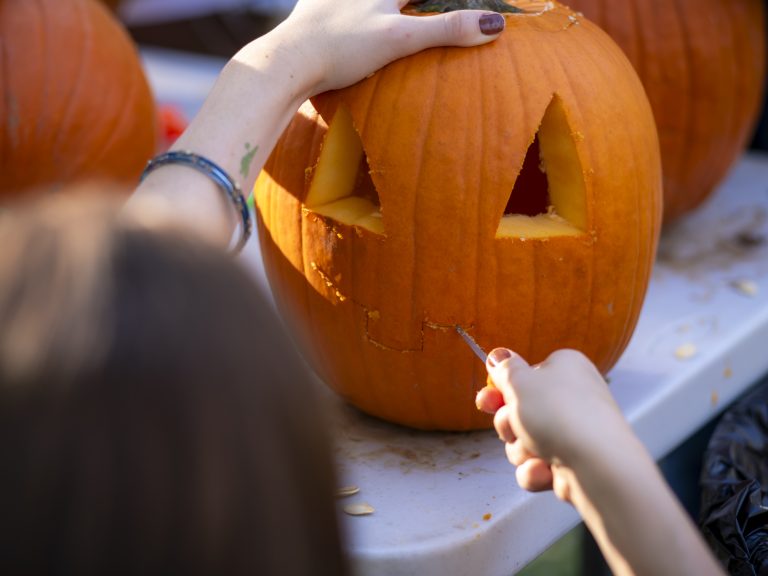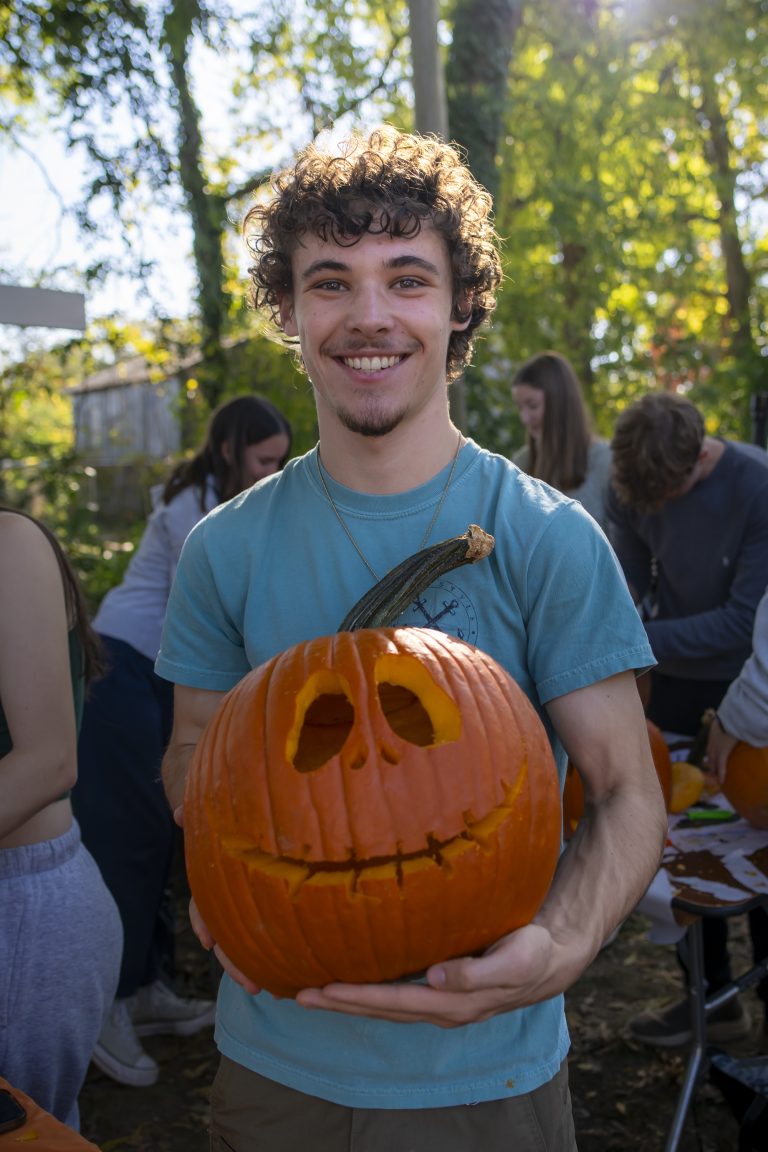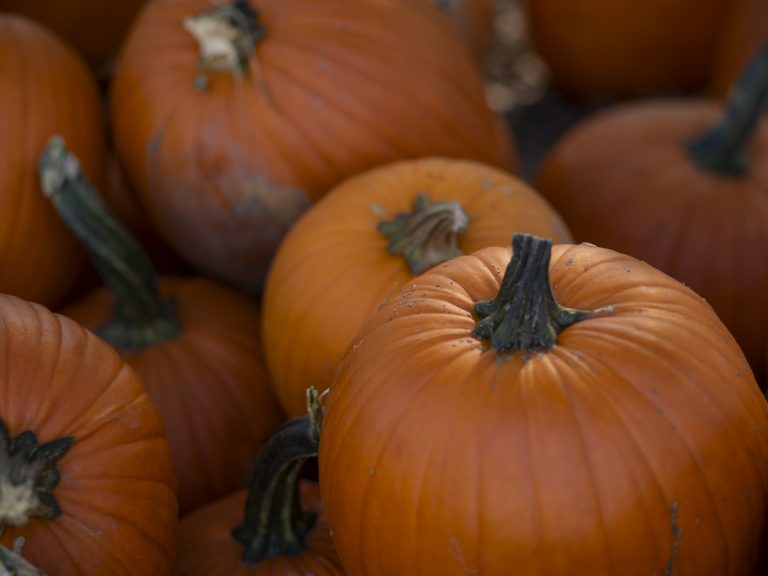Elon students, faculty and staff came together on Oct. 25 for the 16th annual Pumpkin Festival in the Elon Community Garden. The effort is a collaboration between environmental courses and clubs at the university.
Bonny Buckley ‘01, a counselor in Elon University’s Student Health Services, says the annual Pumpkin Festival is great fun for her entire family, including her “acorn babies,” with her husband and fellow alum Chuck Buckley ‘00.
“We never officially dated, we just planned a wedding and got married two days after graduation. We are coming up on our 24th anniversary,” Buckley said. The couple married in McKinnon Hall in the Moseley Center.
Into the garden
Buckley joined others in the Elon community on Oct. 25 for the 16th annual Pumpkin Festival at the Elon Community Garden, hosted by the garden studio class and the Elon Community Garden Club. Students, faculty and staff enjoyed pumpkin carving, vegan Brunswick stew, live music, and arts and craft stations.
Jayla Martin-Beasley ‘24, the teaching assistant for the garden studio class and one of the organizers for the festival, credits the success of the event to the collaboration of nature and environment-centered classes and organizations, including Loy Farm, the garden club, and the agroecology class.
“My favorite part of the festival is when professors and community members bring their children here,” said Martin-Beasley. “It is a good way to get people into the garden and showcase the amazing things our students have planted.”
The vegan Brunswick stew, a tradition and garden club secret recipe, made its appearance once again at the Pumpkin Festival. Attendees praised its resemblance to chicken and the inclusion of the different beans and roots grown by the garden club.
“It was the perfect fall treat on a day like today, with just a little bit of spice and I was really proud of the students,” said Tal Fish, counseling/referral coordinator for Student Health Services.
Finding culture in the “roots”
While the Pumpkin Festival was a time of celebration, agroecology students used this time for environmental research, working with various roots to provide attendees with a familiar product with an adventitious twist.
“The idea is we want to incorporate a lot of cultural traditions since these are vegetables from all around the world,” said Ali Whipple ‘27, whose agriculture lab class was tasked with focusing on the cultural relevance of the vegetables that they grow.
Her table showcased turmeric which is commonly grown on the Indian subcontinent and usually made into a dye. Whipple and her group were able to grow this foreign plant using Elon’s student-built greenhouse. Then, they grind up the root into a powder and turn it into a watercolor that participants at the festival could use to paint or sign their names on paper.
Genevieve Nichols ‘25, who is taking Elon’s agroecology class, focused on the yacon root, native to South America. According to Nichols, the yacon root, despite its healing properties, is not well-known due to its difficulty in cultivation, however experimentation by the Japanese has introduced it to the global agriculture world. Students were experimenting with pumpkin spice pancakes and syrup from a yacon root. The yacon syrup with its molasses texture, though not as sweet as maple syrup or honey, provides a healthy yet still satisfying sweet alternative.
“Instead of using honey or maple syrup, you can use yacon syrup. It helps with diabetes, inflammation, antioxidant properties, and there are studies about it helping to treat depression,” said Nichols ‘25.
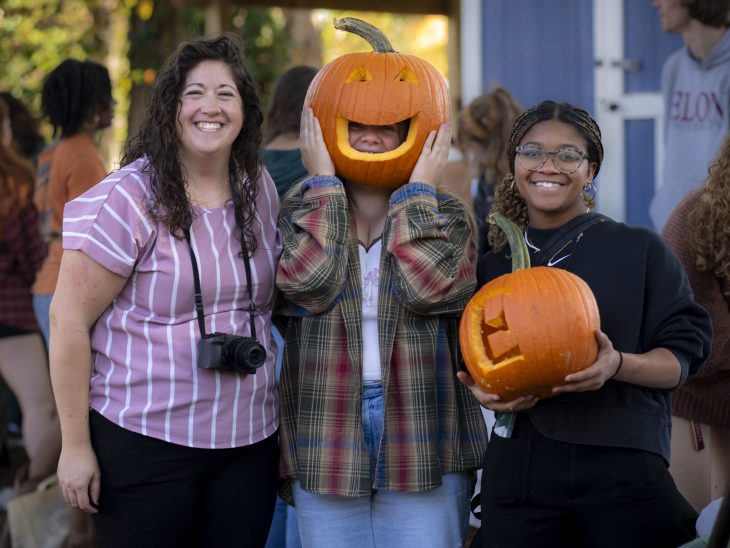
Lilian Biebel ‘26 was tasting and redesigning her batch of taro milk boba tea (without the boba). Taro is a root vegetable, native to southeast Asia, but now is cultivated around the world including in Hawaii, Japan, and Africa. Biebel wanted to manipulate the taro root’s natural nutty taste to a sweeter taste resembling traditional milk boba tea.
Similarly, Lindsey Pearce ’24 was running a hot sauce booth, part of a research project about the different demographics associated with hot sauce. Pearce provided a questionnaire asking participants for their age, origins, their first experiences with hot sauce and daily hot sauce use. Participants were allowed to test their heat tolerance, from Frank’s Red Hot sauce to North Carolina locally sourced hot sauces that required participants to sign a waiver for heat-related injuries including, sweating spells or nausea.
Jacob Rutz, lecturer in environmental studies who works at Loy Farm, didn’t hesitate to taste one of the hot sauces requiring the waiver.
“I’m definitely feeling it, it’s no joke. I am going to wait a few minutes before I try the next one,” said Rutz, who explained that because of his experience at Loy Farm trying various peppers, he no longer has fear of a little heat.
The Pumpkin Festival strives to unite cultural differences and Elon’s traditions to ensure that everyone can carve up some fun this fall.



